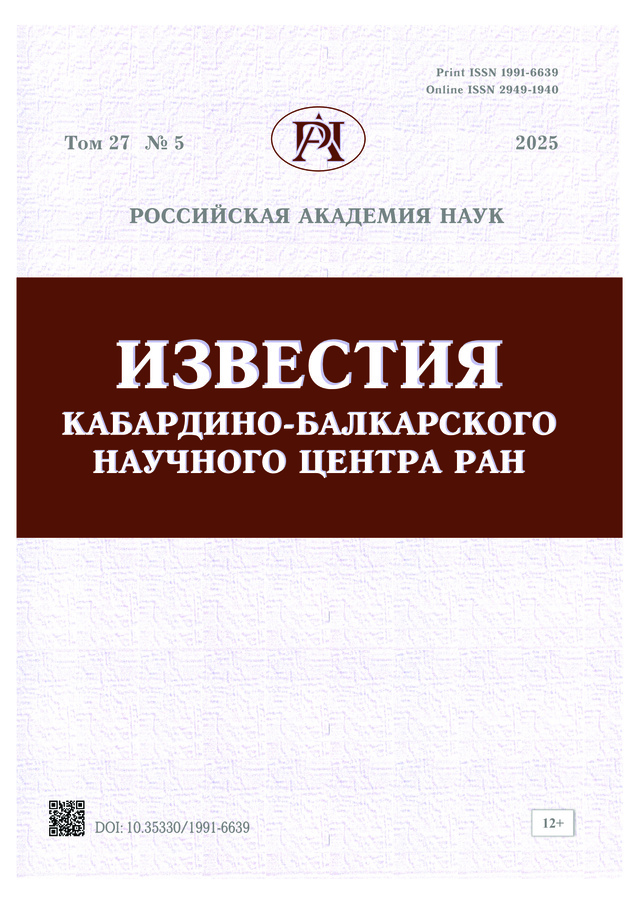Интеллектуальный капитал как основа стратегического потенциала организации
- Авторы: Ерёменко М.С.1, Кобзева Е.В.1
-
Учреждения:
- Донбасский государственный технический университет
- Выпуск: Том 27, № 5 (2025)
- Страницы: 273-284
- Раздел: Менеджмент
- Статья получена: 13.11.2025
- Статья опубликована: 20.11.2025
- URL: https://journals.rcsi.science/1991-6639/article/view/351236
- DOI: https://doi.org/10.35330/1991-6639-2025-27-5-273-284
- EDN: https://elibrary.ru/SPFEMJ
- ID: 351236
Цитировать
Полный текст
Аннотация
В статье проводится анализ управления интеллектуальным капиталом организации и его влияния на развитие организации. В контексте современной экономики, основанной на знаниях, интеллектуальный капитал становится ключевым фактором конкурентоспособности организации, обеспечивая устойчивое развитие и инновационный потенциал. Эффективное управление интеллектуальным капиталом позволяет организации создавать устойчивые конкурентные преимущества, формировать инновационную культуру и обеспечивать долгосрочный успех в условиях динамичной экономической среды.
Цель исследования - определение ключевых составляющих интеллектуального капитала, которые являются основой стратегического потенциала организации.
Результаты. В процессе исследования выявлены аспекты влияния ключевых составляющих интеллектуального капитала на стратегический потенциал организации, определена роль интеллектуального капитала в обеспечении конкурентных преимуществ организации и их устойчивости, а также успешной реализации стратегических инициатив организации. Разработана модель управления интеллектуальным капиталом с целью развития стратегического потенциала организации. Обоснована необходимость системного подхода к управлению интеллектуальным капиталом и его интеграции в общую систему управления и стратегического развития организации.
Выводы. Интеллектуальный капитал и стратегический потенциал имеют прямую взаимосвязь, а также являются взаимодополняющими элементами организации. Эффективное управление интеллектуальным капиталом позволяет организациям формировать и развивать свой стратегический потенциал, при этом обеспечивая устойчивое конкурентное преимущество.
Об авторах
М. С. Ерёменко
Донбасский государственный технический университет
Email: sv8003@mail.ru
SPIN-код: 7080-3909
аспирант
Россия, 294204, Россия, Луганская Народная Республика, г. Алчевск, пр-т Ленина, 16Е. В. Кобзева
Донбасский государственный технический университет
Автор, ответственный за переписку.
Email: kobzeva_kv@mail.ru
SPIN-код: 1425-4962
канд. экон. наук, доцент кафедры менеджмента
Россия, 294204, Россия, Луганская Народная Республика, г. Алчевск, пр-т Ленина, 16Список литературы
- Стюарт Т. А. Интеллектуальный капитал. Новый источник богатства организации: пер. с англ. М., 2007. С. 12.
- Попов С. А. О стратегии и интеллектуальном капитале в эпоху экономики знаний. Размышления по поводу книги Лейфа Эдвинссона "Корпоративная долгота" // Экономические стратегии. 2008. Т. 10. No 4(62). С. 126-132. EDN: TBYLLN
- Брукинг Э. Интеллектуальный капитал: пер. с англ. / под ред. Л. Н. Ковачина. СПб.: Питер, 2001.
- Козырев А. Н. Интеллектуальный капитал [Электронный ресурс]. http://www.labrate.ru/kozyrev/kozyrev_doklad_i-capital_2004.htm
- Иноземцев В. Л. Современное постиндустриальное общество: природа, противоречия, перспективы: учебное пособие. М.: Логос, 2000. 304 с.
- Леонтьев Б. Б. Цена интеллекта. Интеллектуальный капитал в российском бизнесе. М.: Акционер, 2002. 200 c.
- Кононов А. А., Нурулин Ю. Р. Разработка стратегии развития организации в условиях неопределенности и нестабильности // Прогрессивная экономика. 2024. No 6. С. 186-198. doi: 10.54861/27131211_2024_6_186
- Лосева О. В., Абдикеев Н. М. Концепция человеческого интеллектуального капитала в условиях цифровизации экономики // Экономика. Налоги. Право. 2021. No 14(2). С. 72-83. doi: 10.26794/1999-849X-2021-14-2-72-83
- Воронов А. С., Леонтьева Л. С., Орлова Л. Н., Сухарева М. А. Оценка состояния человеческого капитала на этапе шестого технологического уклада: гонка за региональным лидером // Вестник Московского университета. Серия 21: Управление (государство и общество). 2022. No 1. С. 41-63. EDN: BACTDN
- Тугускина Г. Н. Управление интеллектуальным капиталом организации: учебное пособие. Пенза: Изд-во ПГУ, 2021. 138 с.
- Шумилина В. Е. Интеллектуальный капитал: понятие, особенности, оценка // Наука и мир. 2023. No 3. С. 6-10. doi: 10.26526/2307-9401-2023-3-6-10
- Сулейманкадиева А. Э., Фомичева Н. М. Экономика и управление интеллектуальным капиталом. СПб.: Изд-во СПбГЭУ, 2020. 183 с.
- Коваленко Н. В., Дьячков Д. В. Интеллектуальный капитал: сущность, структура // Экономический вестник Донбасского государственного технического института. 2022. No 13. С. 19-25. EDN: TJTDMQ
- Быстров А. В., Михеева Т. В. Особенности управления компонентами интеллектуального капитала в целях влияния на результаты хозяйственной деятельности промышленного предприятия // Финансовые рынки и банки. 2022. No 1. С. 31-35. EDN: LACYZY
- Ибрагимова Р. С., Головкин Д. С. Экономический потенциал как концепция стратегического управления промышленным предприятием // Вестник Пермского университета. Сер. Экономика. 2022. Т. 17. No 4. С. 474-486. doi: 10.17072/1994-9960-2022-4-474-486
Дополнительные файлы








